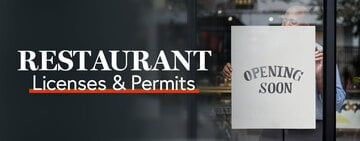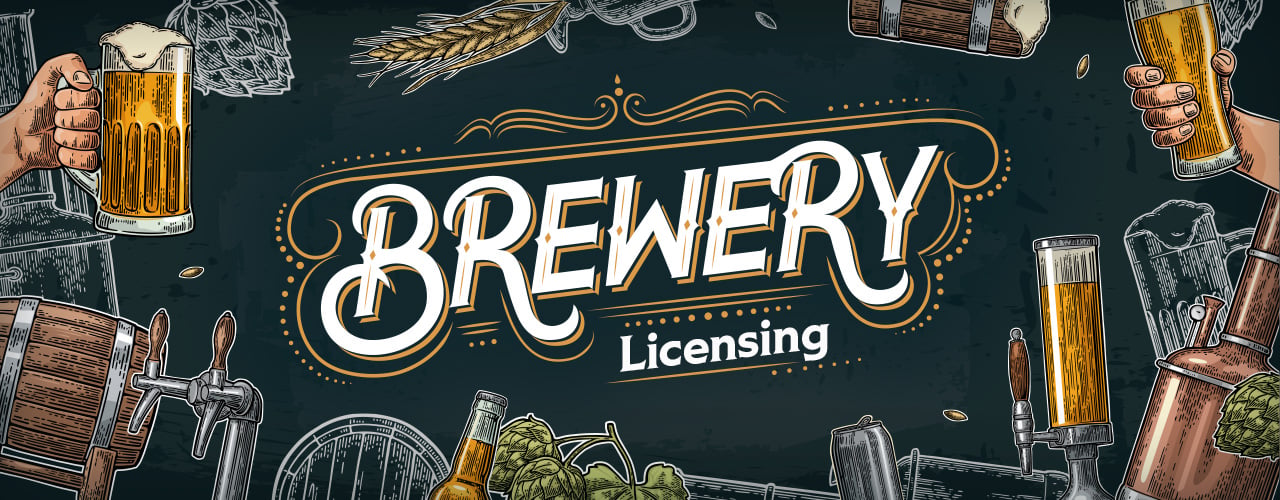
Before diving into the world of brewing, it is crucial to understand the various licensing requirements that come with starting a commercial brewery. Proper licensing ensures that the brewery meets all the necessary regulations and standards set forth by local, state, and federal authorities. Understanding and navigating the complexities of brewery licensing can be a daunting task, but investing time and effort into researching and complying with the necessary requirements is crucial for a successful and legally compliant brewery operation. Below we will delve deeper into the specific licensing requirements for breweries at the federal and state levels.
Shop All Beer Brewing Equipment1. Commercial Licenses
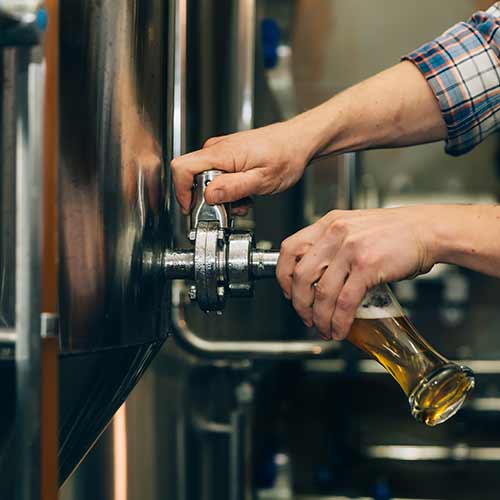
Before you can apply for brewery-specific licenses like a liquor license, you first need to establish your brewery as a legal entity and a business. To do this, there are several commercial licenses that you'll have to apply for and receive. The most important commercial licenses you'll have to acquire for your brewery are listed below:
- Business License - A business license is a document issued by the government that allows a business to conduct operations. To legally operate as a business, you are required to obtain a business license.
- EIN - Every business in the United States requires a nine-digit Employer Identification Number for easy tax identification.
- Seller's Permit - A seller’s permit authorizes your business as a collector of sales tax, a requirement if you’re selling alcohol directly to consumers.
2. Brewer’s Notice
If you're considering starting your own brewery, one of the first steps you'll need to take is obtaining a brewery license. This license is essential for legally producing and selling beer and ensures that you comply with all the regulations and requirements set by the Alcohol and Tobacco Tax and Trade Bureau (TTB). One of the primary documents you'll need to submit when applying for a brewery license is the Brewer's Notice, a document that serves as an application for a permit to engage in brewing beer. We’ve laid out what you need to include in your Brewer’s Notice below:
- Operations - The Brewer's Notice is designed to provide the TTB with essential information about your brewery operations. It allows the TTB to determine if you meet the qualifications and requirements to run a brewery legally.
- Application Process - To obtain a Brewer's Notice, you'll need to complete TTB Form 5130.10. This form requires detailed information about your brewery, including its name, address, ownership structure, and type of business.
- Seller's Permit - A seller’s permit authorizes your business as a collector of sales tax, a requirement if you’re selling alcohol directly to consumers.
- Supporting Documents - Along with the completed form, you'll need to submit several supporting documents. These may include a diagram of your brewery layout, location analysis, a description of your brewing process, and a statement of your intent to produce beer for commercial purposes.
- Bond Requirements - As part of the Brewer's Notice application, you'll also need to provide proof of a required brewer's bond. This bond acts as a financial guarantee that you'll comply with all the regulations and pay any applicable taxes.
- Application Period - Once you've submitted your Brewer's Notice application, there is typically a waiting period before it is approved. The TTB will review your application and may request additional information or clarification if needed.
- Inspection - As part of the licensing process, the TTB may conduct an on-site inspection of your brewery. This inspection ensures that your facility meets all the necessary requirements for safe and compliant beer production.
3. State Brewery License
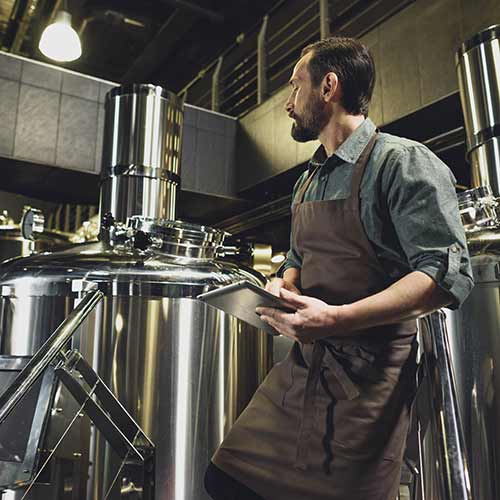
In order to legally operate, a brewery must obtain a state brewery license from its state government. This license is required in addition to any federal licenses or permits, making it a necessary part of the brewery licensing process. Discover the most vital information about applying for a state brewery license below:
- Application Process - The process for obtaining a state brewery license can vary from state to state. Generally, it involves submitting an application to the appropriate state agency along with the required documents and fees. The application may include information about the brewery's ownership, location, production capacity, and any other relevant details.
- License Types - Depending on the state, there may be different types of brewery licenses available. These can include licenses for microbreweries, brewpubs, or production breweries. Each license type may have specific requirements and restrictions, such as limits on production volume or on-site sales.
- Legal Age Requirements - Just like with any alcohol-related business, there are legal age requirements for obtaining a state brewery license. Typically, the brewery's owners and key personnel must be of legal drinking age, which is 21 years old in the United States.
- Compliance with Regulations - Breweries must comply with a variety of regulations to maintain their state brewery license. These regulations can include requirements for labeling, packaging, health and safety standards, and advertising. Failure to comply with these regulations can result in fines, penalties, or even the revocation of the license.
- Renewal and Fees - State brewery licenses are often valid for a specific period of time, typically one to three years. Brewers must renew their license before it expires to continue operating legally. Renewal fees vary by state and may be based on factors such as production volume or the type of license.
4. Local Permits & Licenses
When starting a brewery, it is crucial to obtain the necessary permits and licenses from local authorities. These permits and licenses vary depending on the location and can be a complex process, so it's important to conduct the proper research to fully understand the requirements. Below, we’ve listed some of the most common local permits and licenses you’ll need to acquire before your brewery can start operating.
Zoning Permits
Before opening a brewery, you will need to ensure that your chosen location complies with local zoning regulations. Zoning permits regulate the type of businesses allowed in specific areas, ensuring that they do not disrupt residential areas or other businesses. It is crucial to verify that your chosen location is zoned for industrial or commercial use, as breweries generally fall under these categories.
Building Permits
Once you have secured the appropriate zoning permits, you will need to obtain building permits to ensure that your brewery meets all safety and construction regulations. Building permits are typically required for any new construction or significant renovations to the building. This permit ensures that your brewery is structurally sound and meets all plumbing, electrical, and fire safety regulations.
Health Department Licenses
In order to ensure that your brewery meets health and safety standards, you will need to obtain licenses from the local health department. These licenses typically require inspections of your brewery to ensure that it meets sanitation requirements, follows proper food-handling practices, and avoids health code violations. It is important to note that breweries are often subject to the same regulations as restaurants or food processing facilities due to the nature of brewing and the potential for contamination.
Liquor Licenses
One of the most crucial licenses for a brewery is the liquor license. This license allows you to legally produce and sell alcoholic beverages. The requirements for obtaining a liquor license vary by state and sometimes even by county or city. It is essential to thoroughly research the specific requirements and application process for your location to ensure a smooth and successful licensing process.
Additional Local Permits and Licenses
Depending on your specific brewery operations, there may be additional permits and licenses required. If you plan to have a taproom or brewpub on-site, you may need additional permits for serving alcohol on the premises. Additionally, if you plan to distribute your beer to other establishments or sell it online, you may need permits for wholesale or online sales. It is essential to research and understand all the necessary permits and licenses for your particular brewery business model.
5. Label Approval
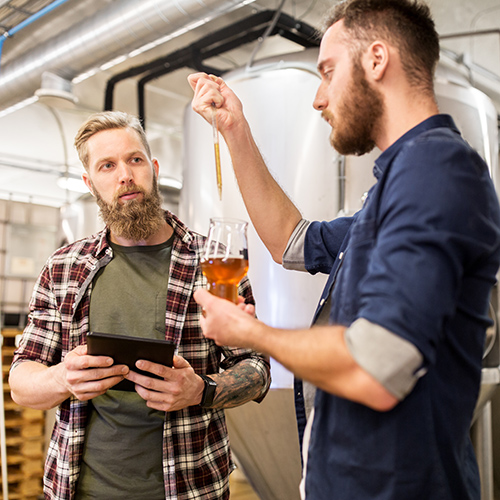
Label approval ensures that all labels comply with the regulations set by the Alcohol and Tobacco Tax and Trade Bureau (TTB). By obtaining label approval, breweries can legally sell their products in the commercial market. When applying for label approval, breweries must provide detailed information about their products such as brand name, a description of the product, ABV, label artwork, and the net contents of the container.
Once the labels are approved, breweries can start using them on their products. However, it's important to note that label approval is not a one-time process. Breweries must obtain separate approvals for each new label or label revision. This ensures that all labels continue to comply with the TTB regulations.
6. Distribution and Wholesale Licenses
In order to legally distribute and sell alcoholic beverages, breweries must obtain the necessary distribution and wholesale licenses. Distribution licenses allow breweries to transport their products to various retail locations, such as bars, restaurants, liquor stores, and grocery stores. These licenses are typically issued by state alcohol control boards or similar regulatory agencies. The requirements and procedures for obtaining a distribution license may vary from state to state, so it is important for breweries to familiarize themselves with the specific regulations in their operating jurisdiction.
Wholesale licenses, on the other hand, enable breweries to sell their products to other businesses within the alcohol industry. This includes selling to distributors, retailers, and other wholesalers. Wholesale licenses are also issued by state alcohol control boards or regulatory agencies, and the application process and requirements will vary depending on the state. Obtaining distribution and wholesale licenses involves completing an application, paying the necessary fees, and meeting certain criteria set by the regulatory authorities.
7. Trademark Protection
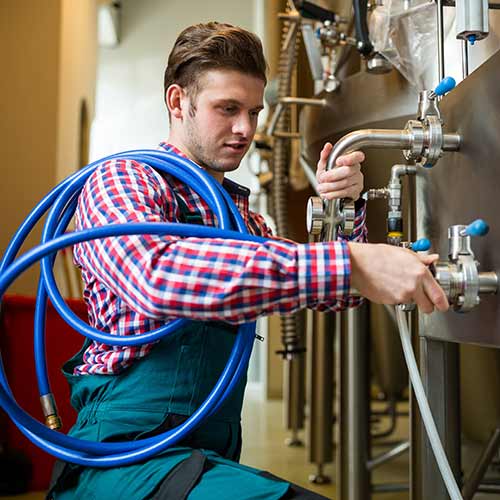
Trademarks are legal protections that grant exclusive rights to use a specific name, logo, or slogan to identify a product or service. In the context of breweries, trademarks are used to protect the unique branding and identity of a brewery's products. Obtaining trademark protection is crucial for breweries as it helps prevent other businesses from using similar names or logos that could potentially confuse consumers. By securing a trademark, breweries can establish a strong brand presence and protect their reputation in the market.
To obtain trademark protection, brewery owners must file an application with the United States Patent and Trademark Office (USPTO). The application should include a detailed description of the trademark, including the name, logo, or slogan that the brewery wants to protect. It is also important to conduct a thorough search to ensure that the proposed trademark is not already in use by another brewery or business. Once a trademark is granted, it is important for breweries to actively monitor and enforce their trademark rights, keeping an eye out for any potential infringement by other breweries or businesses.
Understanding and complying with brewery licensing requirements is crucial for a brewery's success. By obtaining the necessary licenses, breweries can operate legally, build customer trust, and ensure the quality and safety of their products. Failure to obtain the necessary licenses can result in fines, closure of the brewery, and legal repercussions. Additionally, operating without proper licenses can damage a brewery's reputation and hinder its ability to do business with distributors, retailers, and other industry partners.



